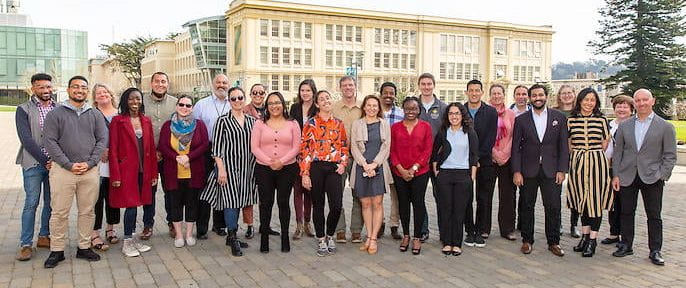
Environmental Justice in Climate Change
Recent Urban and Public Affairs graduate, Justin Pearson (’20) reflects on his journey of centering his capstone research and thesis on thesis on environmental justice and colonialism in post-hurricane Puerto Rico, beginning from his native Jamaican perspective. He credits his work to his broad-thinking, multi-disciplinary capstone advisors and the Schmidt Family Foundation for its support of discussion on the human realities of climate change.
Climate change is global, but the effects are local, and the lives and stories of those affected are all personal. In the Caribbean basin, the reality of hurricanes has always existed. My journey to this topic comes by way of my own upbringing, having been interested in the might of hurricanes as a child in Jamaica. I found the 2005 hurricane season very peculiar because this was the first time that the list of storm names was completely exhausted. This was also the year that the behemoth that was Hurricane Katrina hit, among other notable storms, and the devastation it had on people of color was both obvious and ominous.
Centering environmental justice in climate change
When I was figuring out what I wanted to cover in my capstone project upon admission to the MA Urban and Public Affairs (UPA) program, the Schmidt Family Foundation‘s call for proposals acted as a catalyst to my eventual topic in the field of Environmental Justice and Climate Change. Much of the types of research centered on the very important processes and solutions related to adaptation and mitigation of climate change. I was glad that there was also a focus on the effects of climate change on vulnerable populations, as i felt that those stories needed just as much amplification as the wider issue of climate change. I chose the U.S. territory of Puerto Rico as my case study, specifically its resilience to climate change after the passage of two hurricanes in 2017. I chose this because of Puerto Rico’s reality as a colony of the United States, and because of its location in the Caribbean which served as a halfway point of interests, given my relocation to the U.S. as a Caribbean-born person. As time progressed, the political climate surrounding my chosen topic only grew in importance.
I wanted to go beyond my own understanding of this link between colonialism and inequities caused through climate change. Through consultation with my professors, I sought to cover various aspects of both topics, not just through my capstone project, but in all my UPA classes, to round my research and ability to discuss the topic. This meant a deep-dive into the various elements central and peripheral to understanding the special case of Puerto Rico, from statehood, to the politics, planning and finances related to climate change and to the role of the diaspora and the media narrative surrounding Puerto Rico.
Grassroots governance as an advocate for climate resilience
Armed with this knowledge base, my capstone project examined the relationship between the colonial structures of governance that persist in Puerto Rico and how they affect the island’s resilience to the onslaught of climate change. Within the frameworks of climate change, governance and colonialism, I analyzed the means by which Puerto Rico’s status as a colony of the United States led to its history and present circumstances that have left a gap in terms of effective governance at the federal and other upper levels of government.
My conclusion was that there needs to be a greater level of focus placed on local governance structures, especially grassroots governance. The reactivity and conscientiousness needed to contend with climate change at a local level must emanate from a locality to be most effective.
I am proud to have put together various strands of my experience and research to weave a story of the issue of climate change. This exemplifies the multi-disciplinary nature of the MA in Urban and Public Affairs to place zeitgeist issues of policy in context, and the effects it has on those most vulnerable. I am thankful for the contribution from the Schmidt Family Foundation for getting me on that track, and will take this experience with me going forward.
Check out an article on the Schmidt Family Foundation and their contributions to USF below:


